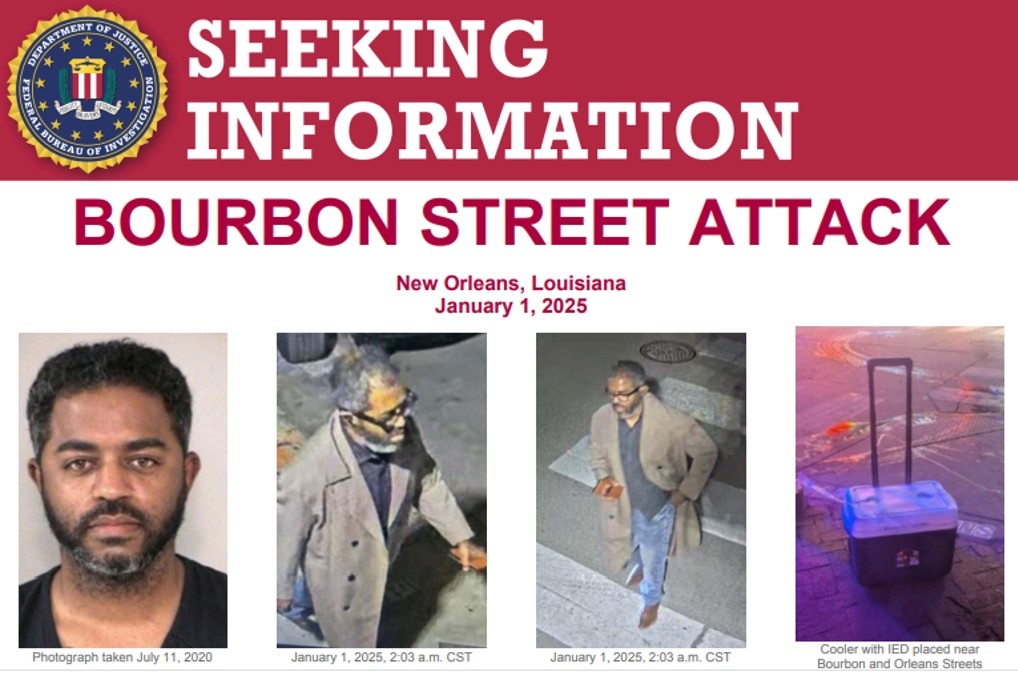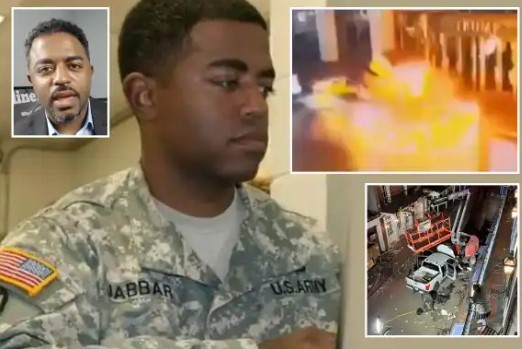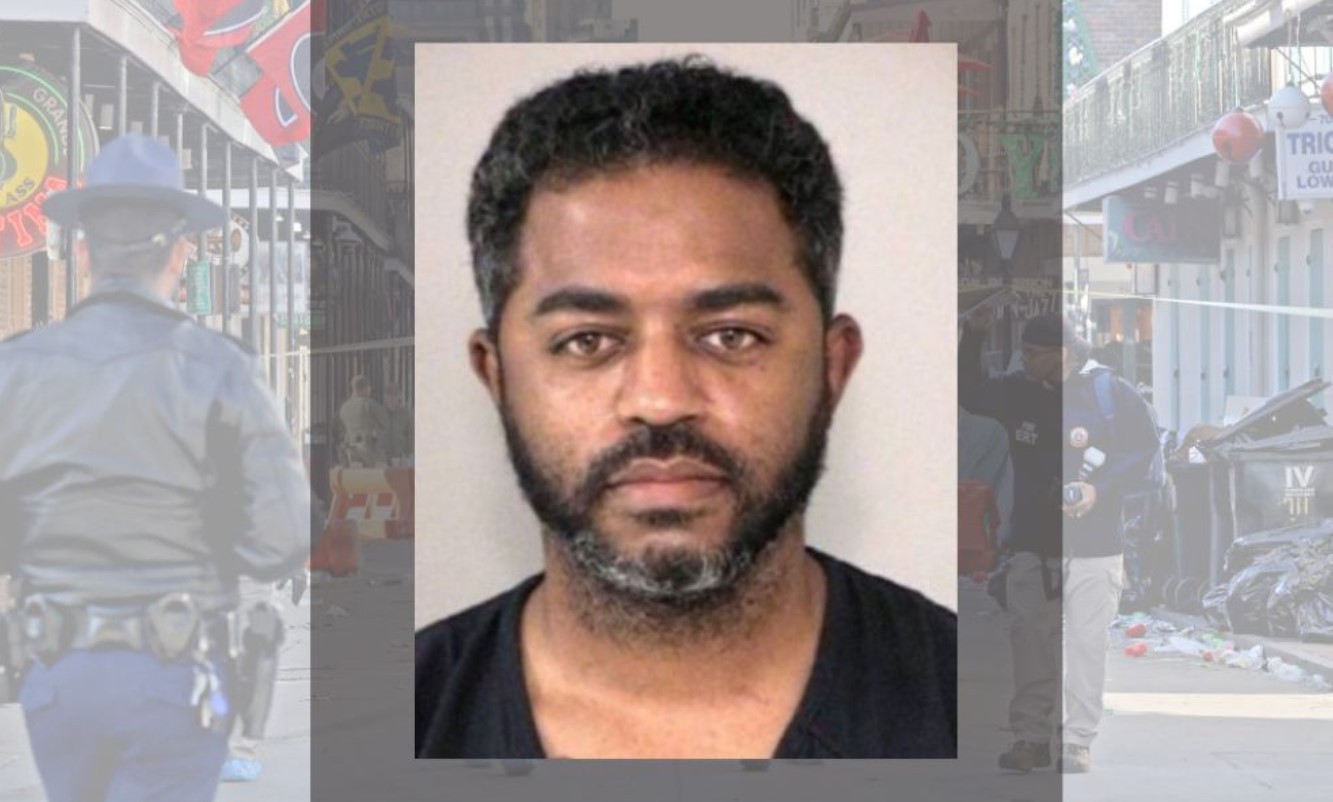What are the Motives: Jabbar’s Ties to ISIS's And Path to Radicalization
 How Safe Is America? Three New Year Bloody Attacks, One Question How Safe Is America? Three New Year Bloody Attacks, One Question The start of 2025, with at least three bloody attacks that killed at least 16 people and injured approximately 60 more, raises the age-old question: ... |
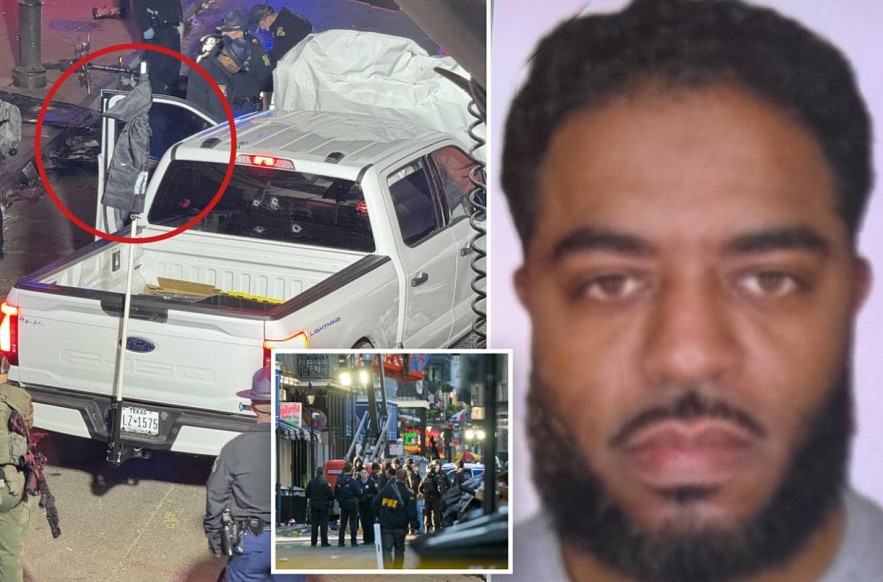 |
| Jabbar's "Path to Radicalization" and What led him to carry out the deadly attack in New Orleans on New Year's Day 2025 |
On January 1, 2025, Shamsud-Din Jabbar drove a rented truck into a crowd on New Orleans’ iconic Bourbon Street during New Year’s celebrations, killing 15 people and injuring dozens. As investigators delve into the incident, questions arise about Jabbar’s motives, his ties to ISIS, and the trajectory of his life that led him to commit this act of terrorism. The attack has exposed the ongoing threat of radicalization in the United States and the psychological, personal, and ideological factors that contributed to Jabbar's actions.
Learn more: New Orleans Terrorist Shamsud Jabbar: Over 10 Years in U.S Army With Medals
Radicalization and Allegiance to ISIS
Jabbar’s ties to ISIS emerged from evidence collected after the attack. Investigators discovered five videos posted by Jabbar on social media in the days leading up to the incident. In these videos, he pledged allegiance to ISIS and described himself as a “soldier of the caliphate.” He expressed a desire to “wage war between believers and disbelievers,” claiming his actions were inspired by the terror group’s ideology.
The videos highlighted a chilling premeditation. Jabbar initially planned to target his family and close acquaintances but ultimately shifted his focus to the Bourbon Street attack to garner more attention. In one recording, he lamented that harming his family would not generate the media coverage necessary to amplify his ideological message. Instead, he aimed for a larger audience by choosing a public and celebratory setting.
Online Radicalization
Experts have linked Jabbar’s radicalization to the resurgence of ISIS propaganda online. Although ISIS has lost its territorial hold, its influence persists through digital platforms. The group has adopted sophisticated methods to attract recruits, focusing on individuals with personal grievances or feelings of alienation. Jabbar, struggling with financial difficulties, two failed marriages, and estrangement from his family, became an ideal target.
“ISIS is still exploiting vulnerabilities,” said Kerry O’Brien Smith, an expert on extremism. “They project strength and promise belonging to those who feel disenfranchised. Jabbar’s personal troubles made him susceptible to their messaging.”
Investigators are examining Jabbar’s online activity, including his interactions on encrypted platforms like Telegram, where ISIS-related propaganda continues to thrive. The content he consumed likely reinforced his belief in the legitimacy of violence as a means of expressing his frustrations and ideological commitments.
Military Background and Transformation
Jabbar’s radicalization contrasts sharply with his earlier life as a decorated U.S. Army veteran. Enlisting in 2007, he served as a Human Resource Specialist and later transitioned to an Information Technology Specialist. His service included a deployment to Afghanistan from 2009 to 2010, where he earned numerous accolades, including the Army Commendation Medal and the Afghanistan Campaign Medal with Campaign Star.
Despite his military achievements, Jabbar struggled with reintegration into civilian life. Following his discharge in 2020, he faced mounting personal and financial difficulties. His second divorce in 2022 included allegations of erratic behavior and financial instability, further isolating him from his support systems. Jabbar’s inability to maintain stable relationships or resolve his grievances may have contributed to his eventual descent into extremism.
 List of 15 Victims in New Orleans Terror Attack: Honoring their Lives and Legacies List of 15 Victims in New Orleans Terror Attack: Honoring their Lives and Legacies |
Family and Community Perspectives
Jabbar’s radicalization shocked those who knew him. His younger brother, Abdur Jabbar, described him as a caring and intelligent individual who converted to Islam at a young age. “What he did does not represent Islam,” Abdur stated. “This is more about radicalization, not religion.”
Neighbors in Jabbar’s predominantly Muslim Houston community echoed similar sentiments. One neighbor recalled him as “quiet, calm, and non-violent,” adding that there were no signs of his extremist intentions. Marilyn Bradford, a former neighbor, described Jabbar as someone who helped carry groceries and played with his children. “He was no terrorist to me,” she said.
However, others noticed changes in his behavior over the years. Dwayne Marsh, the husband of Jabbar’s ex-wife, cited erratic actions, including sudden religious fervor and social withdrawal. Such accounts paint a picture of a man whose psychological and emotional struggles deepened over time, leaving him vulnerable to extremist ideologies.
Personal Struggles
Jabbar’s financial difficulties and personal failures appear to have played a significant role in his radicalization. Court records revealed unpaid child support and mounting debt, despite his previous employment in high-paying roles, such as a $120,000-a-year position at Deloitte. These challenges likely exacerbated his feelings of resentment and inadequacy.
ISIS recruiters often exploit such vulnerabilities, offering individuals a sense of purpose and belonging. In Jabbar’s case, his grievances may have fueled his willingness to embrace violence as a means of addressing his perceived injustices.
The Attack and Aftermath
Jabbar’s attack was marked by careful planning and symbolic gestures. Flying an ISIS flag from his rented truck, he plowed into a dense crowd on Bourbon Street, killing 15 people and injuring dozens more. Police later discovered improvised explosive devices (IEDs) in his vehicle, though none detonated.
After being stopped, Jabbar engaged in a firefight with police before being fatally shot. The attack underscored the dangers of lone-wolf terrorism, where individuals act independently but draw ideological inspiration from extremist organizations.
FBI Deputy Assistant Director Christopher Raia described the attack as “100% inspired by ISIS,” emphasizing its premeditated nature. Authorities continue to investigate Jabbar’s digital footprint and social connections to uncover additional details about his radicalization process.
The Broader Implications
Jabbar’s actions highlight the enduring threat of ISIS-inspired extremism, even years after the group’s territorial defeat. By leveraging online platforms and targeting vulnerable individuals, ISIS remains a potent ideological force. The attack also underscores the need for proactive measures to address radicalization, particularly among veterans and other high-risk groups.
Experts advocate for enhanced monitoring of extremist content online, alongside community-based interventions to support individuals struggling with personal and psychological challenges. The case also raises questions about how society can better support veterans transitioning to civilian life, providing them with resources to address financial and emotional difficulties.
Conclusion
The path of Shamsud-Din Jabbar from a decorated Army veteran to a radicalized terrorist is a tragic and complex narrative. While his personal struggles and ideological influences culminated in a horrific act of violence, his story also serves as a stark reminder of the vulnerabilities that can lead to extremism.
As New Orleans mourns the victims of this senseless attack, the focus must shift toward understanding and addressing the factors that drive individuals like Jabbar to commit such atrocities. By learning from his radicalization and taking steps to prevent similar cases, society can honor the lives lost and work toward a future free from the scourge of terrorism.
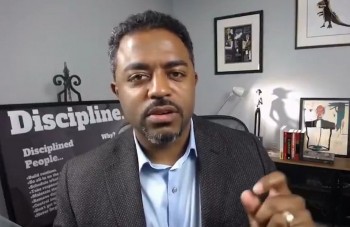 What's Inside the Confessional Videos of New Orleans Terrorist? What's Inside the Confessional Videos of New Orleans Terrorist? The aftermath of the New Orleans terror attack has brought shocking revelations as investigators uncover videos made by the suspect, Shamsud Din Jabbar, in which ... |
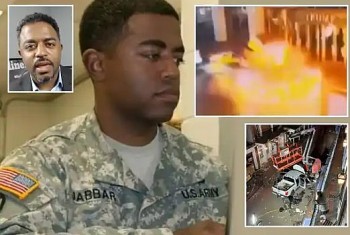 Shamsud Jabbar: How Did a U.S Army Veteran Become a Cold-Blooded Terrorist? Shamsud Jabbar: How Did a U.S Army Veteran Become a Cold-Blooded Terrorist? Retracing the journey that turned Shamsud-Din Jabbar, a decorated US Army veteran who fought in Afghanistan, into a terrorist with confession videos before carrying out ... |
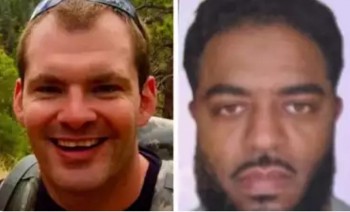 U.S Army Link Between New Orleans Attack And Tesla Cybertruck Explosion U.S Army Link Between New Orleans Attack And Tesla Cybertruck Explosion There apparently is a shocking connection between the Cybertruck explosion outside Trump Hotel and the New Orleans truck ramming. |

